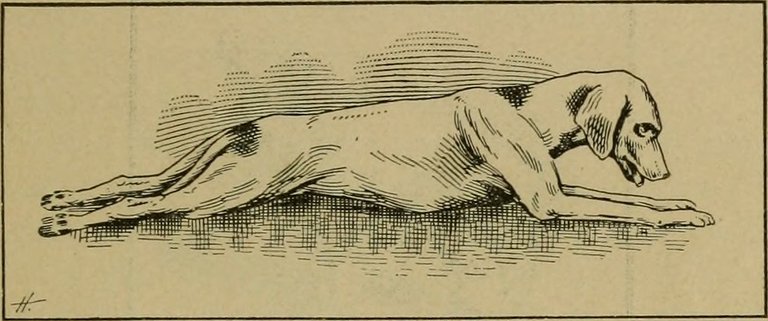Handling Indigestion in your Dog.
The same way you as a pet owner could experience indigestion is how your pet could experience the same. It is not uncommon for dogs to experience indigestion mainly after food consumption. Still, you need to pay attention to them in order to figure out their symptoms and begin immediate treatment, this will help prevent further health problems like ulcers.

flickr.com
When you just find out that your dog begins to snap his jaws, and lick his lips almost after eating, the next thing that would most likely follow is vomiting, and it is at this point that the stomach begins to make gurgling noises. The bad thing is, he can't speak to you about his symptoms, but it is most likely that he is going through a phase of indigestion.
Food allergies, intestinal dysbiosis, improper digestion, low stomach acid, bowel disorders are common causes of indigestion in dogs. Hiatal Hernia or Diaphragmatic Hernia is another common cause of indigestion in dogs, it is a stomach defect that creates an opening in the diaphragm, creating room for a portion of the intestine or the stomach liver to enter directly into the chest.
Let me try to do a proper explanation of some of these reasons stated above one after another;
So, when your dog has excessive stomach acid buildup, it simply means in literal terms that the body isn't working appropriately. This stomach acid is useful for both humans and dogs, as it helps with the break down of food into nutrients and wastes, it also functions by aiding digestive process, but indigestion happens when your pet's stomach begins to produce too much of the stomach acid.

flickr.com
With the presence of the excessive stomach acid, pressure begins to build up within the gastric system, causing discomfort, pain, and bloating. Your pet responds by trying to get rid of the problem naturally by releasing pressure, which can only go out either through the pet's mouth or anus.
Recognizing the signs of Indigestion in your pet.
Vomiting: When your pet is attempting to throw up seriously, it is a strong sign that he or she is in distress, because in that case, he may be trying very hard to get rid of offending substance from his body.
Stomach bloat: Finding out that your pet's stomach has become visibly big possibly due to the buildup of gas, then something may be wrong. What is wrong, may not be visibly clear, but you can gently feel your dog's stomach and other local areas. If their reaction is a yell of discomfort or pain, then you can tell that there is a presence of gastric issue there, also constant whimpering is also a clear sign that your pet is in distress.
Bad Breath: The act of vomiting, trying to chock back bile and the presence of excessive stomach acid, will ultimately leave the breath of your dog less pleasant.
Passing gas: Your dog just begins to fat more than usual, the excessive gas disposal may simply mean that your pet is trying to relieve itself.
Behavioural changes: With discomfort comes changes in behavior too. Let's say your pet is naturally playful, energetic and all over the place but suddenly starts to act differently, you can tell that the change in attitude could be sponsored by the weakness associated with improper digestion.
Grass consumption: To feel less uncomfortable, if your pet has access to grass, he may just begin to feed on it. According to research, this is a form of self-medication some dogs practice, when they feed on the grass, it helps them to either vomit or eliminate the discomfort through the passing out of feces.
Some home remedies could help relieve the symptoms felt by your pet;
remember that indigestion is probably as a result of something your dog ate, you may just allow nature do it's thing and see if they can get it out of their system on their own. At this point, do not try to feed the pet.
You may also think they will need water after throwing up, while hydration is important, your pet may also drink too much water and things gets even worse. So, instead of water, let them have a bowl of ice chips to chew once in every few hours, when the pet can have that without throwing up, then you can move to water from there.
Why you should see a vet immediately.
The reason why self-medication may not be advisable is because, while these signs could be a regular sign of indigestion, it could also be an indication to a more serious medical condition. If you notice that the digestive problem of your pet is getting worse, he may be suffering from another condition that requires urgent medical attention.
While it may be normal for your pet to have stomach disorder, you also have to pay attention to the decline in the health of your pet. Your vet will need to rule out the ingestion of a toxin, or tumor.
Thanks for your contribution to the STEMsocial community. Feel free to join us on discord to get to know the rest of us!
Please consider delegating to the @stemsocial account (85% of the curation rewards are returned).
Thanks for including @stemsocial as a beneficiary, which gives you stronger support.